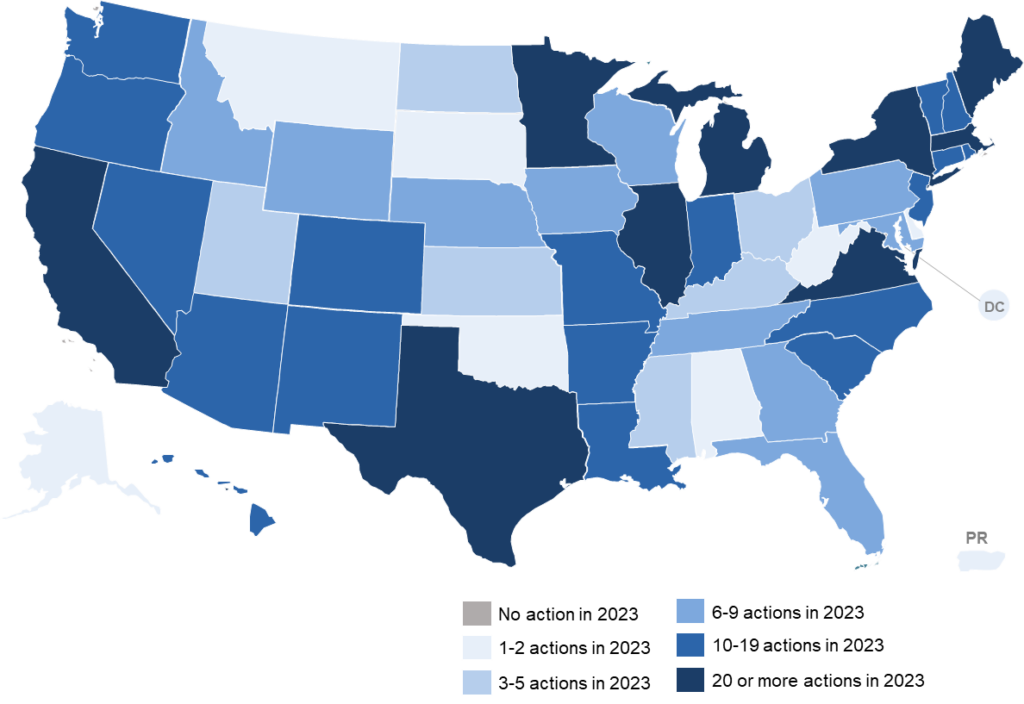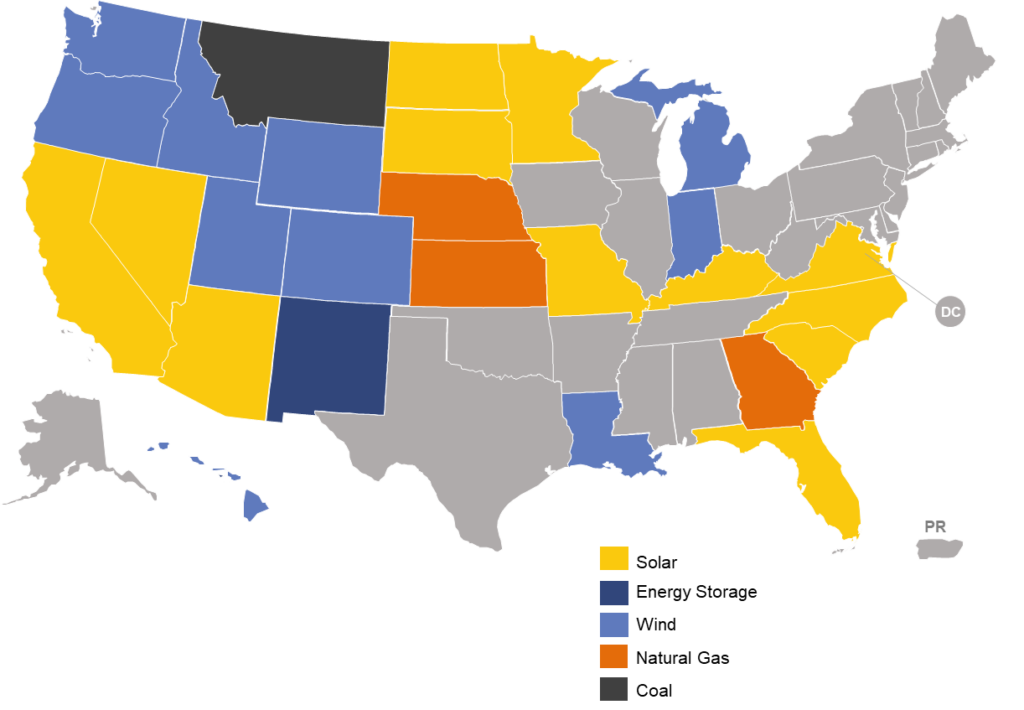50 States of Power Decarbonization 2023: Solar, Wind, and Storage Dominate Utility Resource Plans, While Policymakers Provide Support for Emerging Technologies in 2023
Raleigh, NC – (February 15, 2024) The N.C. Clean Energy Technology Center (NCCETC) released its 2023 annual review and Q4 2023 edition of the 50 States of Power Decarbonization. The quarterly series provides updates on state and utility actions pertaining to clean energy targets, emission reduction targets and carbon policies, generation planning and procurement rules, integrated resource plans, and electric generation capacity changes (RFPs, green tariffs, power plant retirements, etc.).
The 2023 annual review report finds that all 50 states, as well as DC and Puerto Rico, took a total of 609 actions related to electric power decarbonization and resource planning during the year (see figure below). The report notes the top ten states taking the greatest number or most impactful actions in 2023 were Michigan, Minnesota, Colorado, Maine, North Carolina, Virginia, Connecticut, Hawaii, Maryland, and Delaware.
2023 Action on Power Decarbonization and Resource Planning

The report highlights ten of the top power decarbonization and resource planning trends of 2023:
- States establishing 100% clean energy targets;
- Renewables dominating planned capacity additions in integrated resource plans;
- Modifying resources eligible for compliance with clean and renewable energy targets;
- State lawmakers promoting offshore wind development;
- Utilities planning for growing electricity demand;
- Studying the feasibility of advanced nuclear;
- Utilities proposing hydrogen-capable natural gas generation additions;
- Undertaking economy-wide decarbonization efforts;
- Utilities pursing all-source competitive procurements; and
- Updating resource planning objectives and processes.
“In 2023, we saw a lot of action from state policymakers focused on strengthening clean energy targets, as well as promoting emerging clean energy resources, like offshore wind, advanced nuclear, and long-duration storage,” observed Autumn Proudlove, Associate Director of Policy & Markets at NCCETC. “On the resource planning and implementation side, we saw utilities including predominantly clean energy resources like solar and wind in their plans for generation capacity additions.”
Among integrated resource plans recently filed or under review by regulators in 2023, planned capacity additions totaled 120,913 MW for solar, 70,863 MW for wind, 56,277 for storage, and 34,249 for natural gas, while planned coal retirements 47,835 MW.
2023 Utility Integrated Resource Planning Action, by Largest Planned Resource Addition

“One of the most common ways for states to encourage power sector decarbonization is through renewable or clean energy standard implementation,” noted Rebekah de la Mora, Senior Policy Analyst at NCCETC. “Throughout the year, states considered whether to adopt, revise, or repeal these standards, along with targets for specific technologies. Energy storage and offshore wind had the highest interest when it came to technology-specific targets, with solar-specific targets close behind.”
In Q4 2023, 46 states and Puerto Rico took some type of action on power decarbonization and resource planning. A total of 333 actions were tracked in Q4.
View the 50 States of Decarbonization 2023 Annual Review and Q4 Update Executive Summary
View and Purchase the 50 States of Decarbonization 2023 Annual Review Q4 Update FULL Report
View other 50 States Reports – Solar, Grid Modernization, Electric Vehicles and Decarbonization
ABOUT THE N.C. CLEAN ENERGY TECHNOLOGY CENTER
The N.C. Clean Energy Technology Center, as part of the College of Engineering at North Carolina State University, advances a sustainable energy economy by educating, demonstrating and providing support for clean energy technologies, practices and policies. It serves as a resource for innovative, sustainable energy technologies through technology demonstration, technical assistance, outreach and training. For more information about the Center, visit: http://www.nccleantech.
Media Contact: Shannon Helm, NCCETC, shannon_helm@ncsu.edu